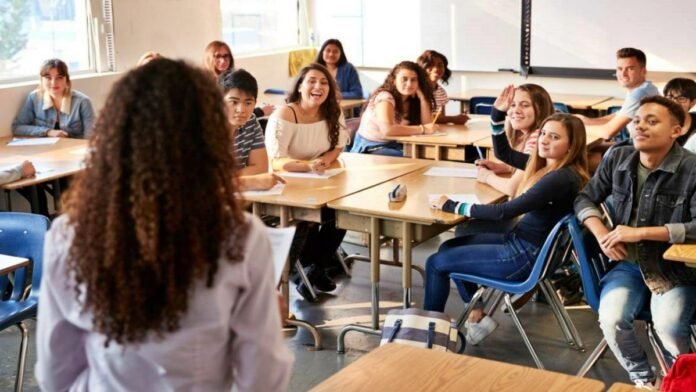
Key Points:
- OPT program under threat: A new US bill aims to terminate the Optional Practical Training (OPT) program, which allows international STEM students to work in the US for up to three years post-graduation.
- Impact on Indian students: Over 97,000 Indian students currently rely on OPT for work experience and loan repayment; they may face immediate deportation if the bill passes.
- H-1B visa uncertainty: Students are scrambling to secure H-1B visas, but the lottery system and limited slots make it a challenging alternative.
- Broader consequences: The move could reduce US universities’ financial and academic diversity while pushing skilled talent toward other countries like Canada, the UK, and Australia.
- Urgent actions by students: Many have canceled travel plans and are seeking alternative opportunities abroad amid fears of being denied re-entry.
Washington D.C.: A newly proposed bill in the US Congress has sent shockwaves through the international student community, particularly among Indian students pursuing STEM (Science, Technology, Engineering, and Mathematics) courses. The bill seeks to abolish the Optional Practical Training (OPT) program, a critical pathway that allows foreign graduates to gain work experience in the US for up to three years after completing their studies. If passed, this legislation could force thousands of students to leave the country immediately after graduation unless they secure an H-1B visa.
What is the OPT Program?
The OPT program provides temporary work authorization to international students on F-1 visas. It allows them to:
- Gain practical industry experience aligned with their field of study.
- Earn salaries that help repay substantial education loans.
- Transition smoothly into long-term employment via H-1B visas.
STEM graduates benefit from a 24-month extension beyond the standard 12-month OPT period. However, this lifeline for over 300,000 international students—97,556 of whom are Indian now hangs in the balance.
Why is the Bill Concerning?
The proposed legislation comes amid rising anti-immigrant sentiment in the US. It aligns with former President Donald Trump’s “Buy American, Hire American” agenda, which prioritizes American workers over foreign talent. Key concerns include:
- Immediate deportation risk: Students unable to transition to an H-1B visa would have no legal grounds to remain in the US.
- Financial impact: Without access to US-level salaries, many students may struggle to repay education loans.
- Career disruption: The absence of OPT would eliminate a crucial stepping stone for gaining professional experience in competitive industries like tech and engineering.
Immigration lawyer Poorvi Chothani noted that “if passed, this bill could abruptly end OPT without offering any alternative work visa options.”
Impact on Indian Students
Indian students are disproportionately affected as they represent a significant portion of OPT beneficiaries. According to the Open Doors 2024 report:
- India was the largest source of international students in the US during 2023–24, with 331,602 enrolled.
- Approximately 30% of these students rely on OPT.
The potential termination of OPT has led to widespread panic:
- Many students have canceled travel plans fearing re-entry issues.
- Universities like Cornell and Columbia have informally advised international students not to leave the country during holidays.
- A rush to secure H-1B sponsorships has intensified competition for limited slots.
Broader Consequences
The implications of ending OPT extend beyond individual careers:
- Economic loss for universities: International students contribute approximately $43.8 billion annually to the US economy through tuition fees and living expenses. Losing this revenue could financially strain many institutions.
- Talent drain: Skilled professionals may choose countries with more favorable immigration policies like Canada, Australia, or the UK.
- Impact on innovation: International STEM graduates play a critical role in driving technological advancements and research in the US.
The Congressional Research Service highlighted that eliminating OPT could weaken America’s global competitiveness in science and technology.
Student Actions Amid Uncertainty
Faced with an uncertain future, many students are taking proactive steps:
- Applying for jobs with employers willing to sponsor H-1B visas.
- Exploring educational and career opportunities in other countries.
- Fast-tracking their transition from F-1 visas to alternative work permits.
However, these efforts come with challenges as H-1B visas are subject to annual caps and a lottery-based selection process.
What’s Next?
The fate of the proposed bill remains uncertain as it faces scrutiny from lawmakers and advocacy groups. Legal experts suggest that if passed, it could face challenges in court over its potential violation of constitutional rights related to equal opportunity and due process.
For now, international students are left grappling with anxiety as they await clarity on their future in America. The potential rollback of OPT threatens not just their dreams but also America’s reputation as a hub for global talent and innovation.



















































